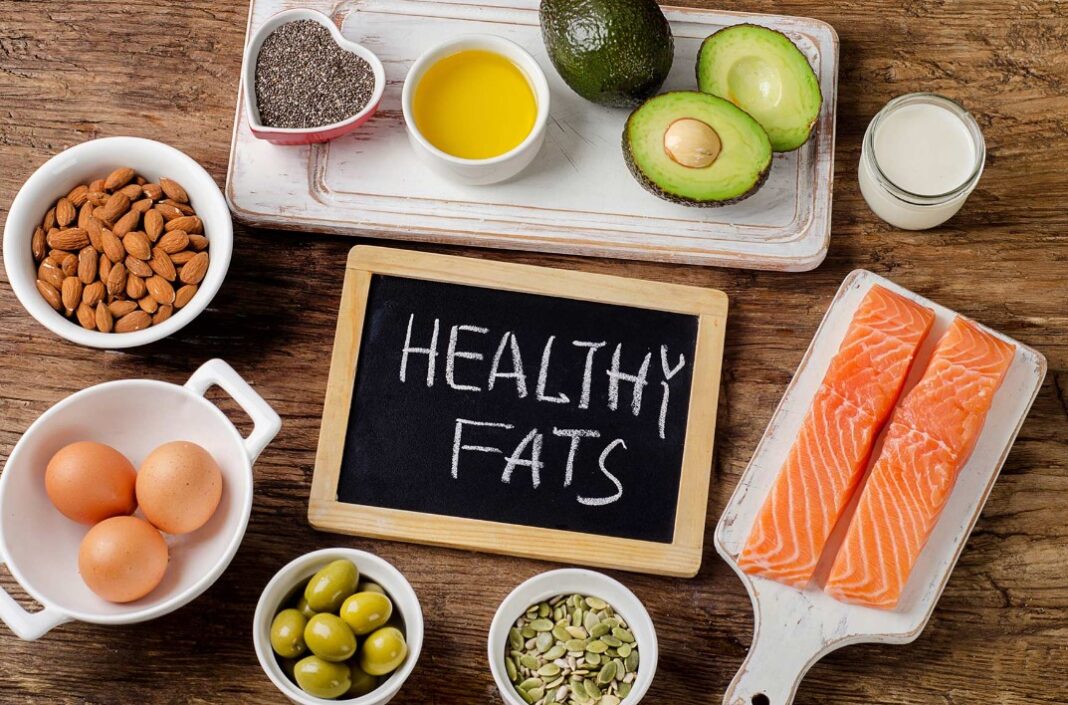BOURSESSENEGAL – When it comes to nutrition, many people still fear the word “fat.” However, not all fats are created equal. Healthy fats play a crucial role in maintaining overall health and wellness. In this guide, we’ll explore what healthy fats are, their benefits, sources, and how to incorporate them into your diet effectively.
What Are Healthy Fats?
Definition and Types
Healthy fats primarily refer to unsaturated fats. These fats come from plant sources and fish, and they can be further classified into two main types: monounsaturated fats and polyunsaturated fats.
- Monounsaturated fats: Found in olive oil, avocados, and nuts, these fats can help reduce bad cholesterol levels.
- Polyunsaturated fats: This category includes omega-3 and omega-6 fatty acids. Omega-3s are prevalent in fish like salmon and flaxseeds, while omega-6s are found in many vegetable oils.
Why Are They Important?
Healthy fats are essential for various bodily functions. They help absorb fat-soluble vitamins like A, D, E, and K. Moreover, fats provide energy and support cell growth. They also play a vital role in hormone production and inflammation regulation.
Benefits of Healthy Fats
1. Heart Health
One of the most significant benefits of healthy fats is their positive impact on heart health. Research shows that consuming unsaturated fats instead of saturated fats can lower the risk of heart disease. They help improve cholesterol levels by increasing HDL (good) cholesterol while lowering LDL (bad) cholesterol.
2. Weight Management
Healthy fats can aid in weight management. Including these fats in your diet can help you feel fuller longer, reducing overall calorie intake. When you consume healthy fats, your body uses them as a source of energy rather than storing them as fat.
3. Brain Function
Your brain relies on fat for optimal function. Healthy fats, particularly omega-3 fatty acids, contribute to brain health by supporting cognitive functions and reducing inflammation. Studies indicate that diets rich in omega-3s may lower the risk of neurodegenerative diseases like Alzheimer’s.
4. Skin Health
Healthy fats also promote skin health. They help maintain the skin’s moisture barrier, keeping it hydrated and supple. Omega-3 fatty acids can reduce skin inflammation and help manage conditions like eczema and psoriasis.
5. Hormonal Balance
Fats play a crucial role in hormone production. Healthy fats support the synthesis of hormones that regulate metabolism, inflammation, and reproductive health. Consuming adequate healthy fats can help maintain hormonal balance.
Sources of Healthy Fats
1. Avocados
Avocados are a powerhouse of healthy fats. They contain monounsaturated fats, fiber, and a host of vitamins and minerals. You can enjoy them in salads, smoothies, or on toast.
2. Nuts and Seeds
Nuts and seeds, such as almonds, walnuts, flaxseeds, and chia seeds, are excellent sources of healthy fats. They are easy to incorporate into your diet as snacks or toppings for yogurt and oatmeal.
3. Olive Oil
Extra virgin olive oil is a staple of the Mediterranean diet, renowned for its health benefits. Use it as a salad dressing, drizzle it on vegetables, or for cooking at lower temperatures.
4. Fatty Fish
Fatty fish like salmon, mackerel, and sardines are rich in omega-3 fatty acids. Aim to include fish in your diet at least twice a week for optimal heart and brain health.
5. Dark Chocolate
Yes, you read that right! Dark chocolate contains healthy fats and antioxidants. Choose chocolate with at least 70% cocoa for the best benefits.
How to Incorporate Healthy Fats into Your Diet
1. Start Your Day Right
Begin your day with a breakfast rich in healthy . Consider avocado toast topped with a poached egg or a smoothie made with nut butter and spinach.
2. Snack Smart
When snacking, opt for nuts, seeds, or hummus with veggies. These choices provide healthy and keep you satisfied until your next meal.
3. Use Healthy Oils for Cooking
Replace butter or margarine with olive oil or avocado oil. These oils have a higher smoke point and offer healthier fat options.
4. Add Fatty Fish to Your Meal Plan
Incorporate fatty fish into your meals at least twice a week. Try grilled salmon with a side of quinoa and vegetables for a nutritious dinner.
5. Experiment with Recipes
Explore new recipes that feature healthy . Consider salads with nuts, smoothies with chia seeds, or baked goods made with coconut oil.
Balancing Your Fat Intake
1. Monitor Portion Sizes
While healthy offer numerous benefits, moderation is key. Fats are calorie-dense, so keep portion sizes in check to avoid excessive calorie intake.
2. Replace, Don’t Add
Instead of adding healthy to an already rich meal, replace unhealthy with healthier options. For instance, use avocado instead of mayonnaise in a sandwich.
3. Be Mindful of Processed Foods
Many processed foods contain unhealthy trans fats. Always check labels and opt for whole foods whenever possible to maintain a healthy fat balance.
Conclusion: Embrace Healthy Fats for a Better You
Incorporating healthy into your diet is a smart and delicious way to enhance your overall health. From heart health to brain function, the benefits are vast and significant.
By choosing the right sources and maintaining balance, you can enjoy the rich flavors and nutritional advantages that healthy offer. So, embrace these nourishing fats and let them be a part of your journey towards a healthier lifestyle!
REFERENCE : ran303



